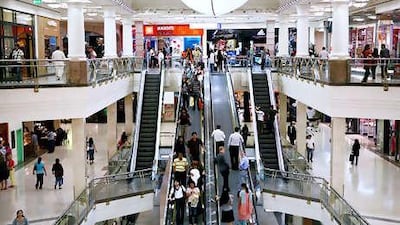People and business leaders in the Emirates are slowly regaining their confidence, as a new survey suggests an end to the deepest global economic slump since the Great Depression is finally within sight. But the study of business confidence, conducted by The National in conjunction with YouGovSiraj, shows many are wary that the UAE's economy is still recovering.
Business leaders, however, appear reassured that the economy has rebounded and plan to hire more staff in the coming year, with Abu Dhabi leading expectations of new hirings. Of those who responded to the survey 61 per cent of the general public believed they would receive a pay rise in the next year. Meanwhile, 47 per cent said they believed the economy was on the mend and a further 9 per cent said the economy had already recovered.
Referring to the survey, Philippe Dauba-Pantanacce, an economist at Standard Chartered, said: "Things are going in the right direction." The economic survey forms the first of a five-part series in The National that will explore the state of the property sector, consumer spending and saving, a proposed Gulf single currency and efforts to bring more Emiratis into the workforce. Economists said the results of the study showed a positive outlook for the country. Rising business confidence is an indication of a population's willingness to spend more, which in turn boosts the economy.
Mr Dauba-Pantanacce said: "We do hear anecdotal evidence of job vacancies in the economy and, generally speaking, I think that - whatever has been said about the UAE and Dubai in general - Dubai in particular will still be the hub for the Gulf and the MENA region. I'm confident of that." The survey is not wholly positive, however. Fear of redundancy appears to have left a lasting impression on the general public, many of whom have seen friends and colleagues laid off during the past few years.
On the question of job security, 45 per cent of the public were "somewhat concerned" and 30 per cent were "extremely concerned". But Giyas Gokkent, the chief economist at the National Bank of Abu Dhabi, said the expectation of more staff hiring and fewer redundancies could spell a recovery soon. "Downsizing tends to occur early on [during a recession], as firms grapple with reduced sales and activity," Mr Gokkent said. "They then position themselves for a pick-up in activity."
The optimism is most pronounced in Abu Dhabi, where 54 per cent of respondents say they expect to be hiring, compared with 34 per cent in Dubai and 38 per cent in the other emirates. Of those businesses forecasting redundancies, slightly more are in Dubai (15 per cent) and the other emirates (11 per cent) than in Abu Dhabi (9 per cent). The largest emirate is benefitting from a splurge of investment by the UAE Government, which is funnelling about four times its GDP for this year into bigger projects over the medium term, according to JPMorgan Investment Bank.
These projects will create extra work across a number of sectors, including facilities maintenance and finance. Although economists differ on the exact numbers, most agree that GDP, the measure of a country's annual production, is due to increase. The IMF expects economic growth in the UAE of 1.3 per cent this year and 3.1 per cent next year. Mr Gokkent warns turbulence in global markets still threatens to derail recovery in the Emirates. "A potential second dip in global activity leading to lower asset and commodity prices would be a threat," he said. "If it comes it would be likely to occur in 2011 or 2012.
Brahim Razgallah, the chief economist for MENA at JPMorgan, said a long slump in the price of oil would be the biggest threat to any recovery. "Despite the fact that the UAE is one of the most diversified economies in the region, the economy is still highly reliant on revenue from hydrocarbons, especially for fiscal revenue," Mr Razgallah said.
gregor.hunter@thenational.ae
afitch@thenational.ae

